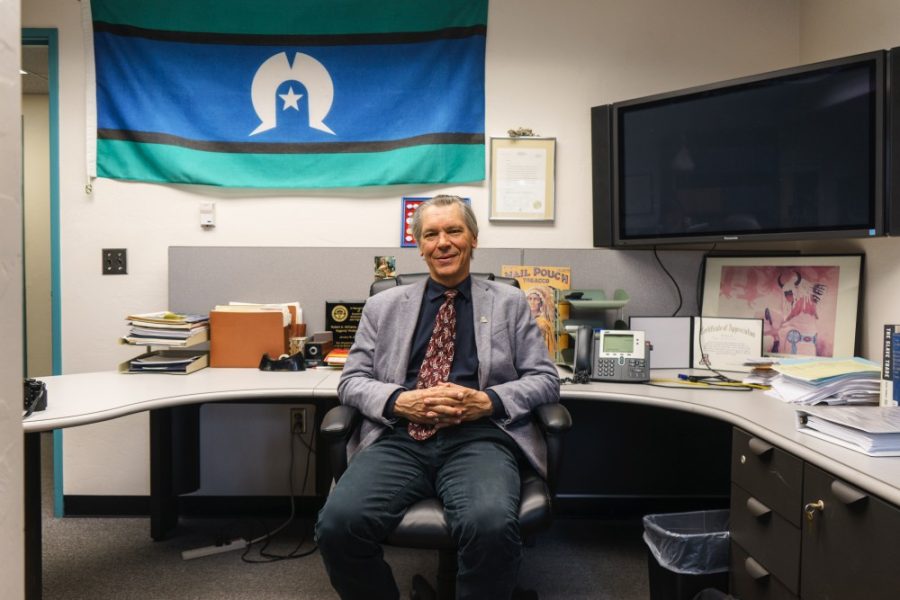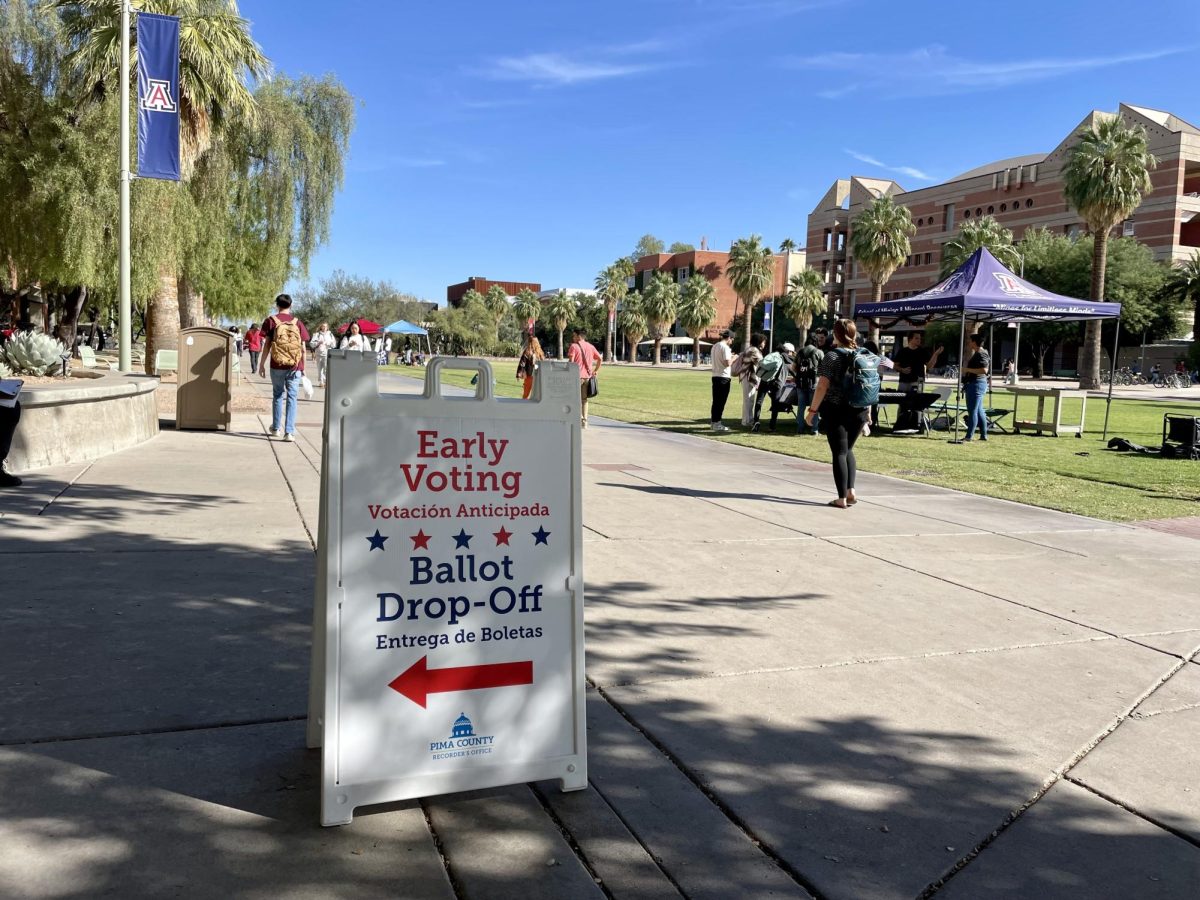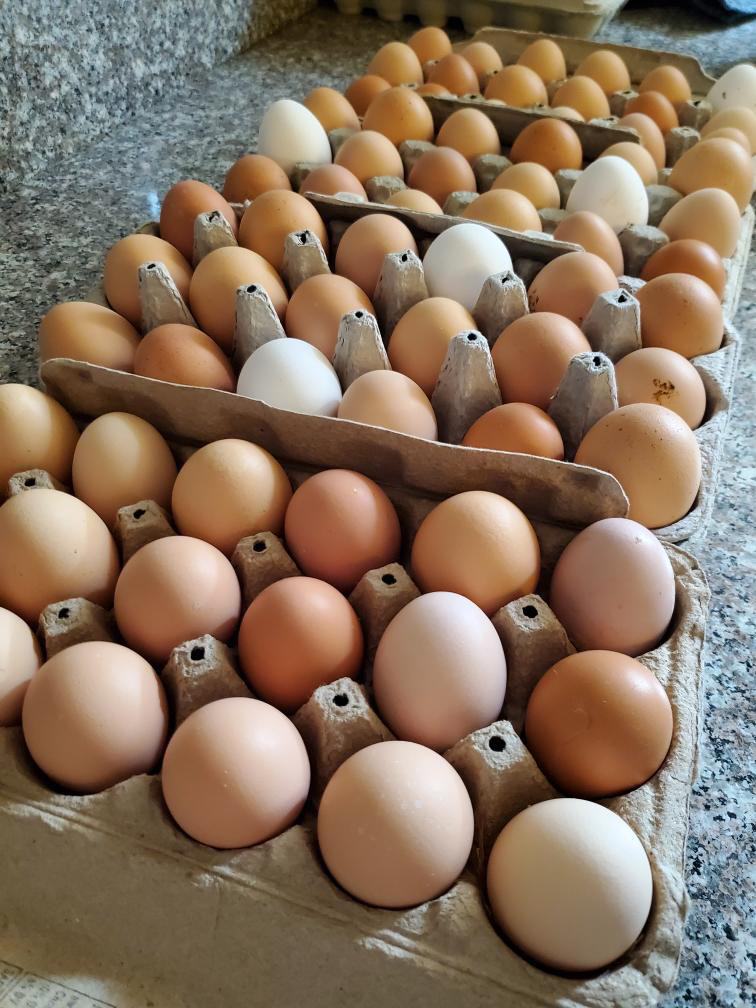For almost 30 years, University of Arizona’s Indigenous Peoples Law and Policy Program has been one of the James E. Rogers College of Law’s most prominent programs.
UA Law has recently been ranked number one by the National Jurist two years in a row for having the largest amount of Native American students.
According to the IPLP website, they are the only program in the world to offer three graduate degrees in the field, including a Master of Legal Studies and a Master of Professional Studies. A Bachelor of Arts program was also recently created by Regents’ Professor of Law Robert A. Williams Jr., who is E. Thomas Sullivan Professor of Law and Faculty Co-Chair of the IPLP program.
RELATED: UA Law professor named Regents Professor
Over 30 years ago, Williams was recruited as a law professor by then-President Henry Koffler and Provost Nils Hasselmo to develop the IPLP program. Last April, Williams received the title of Regents’ Professor. Together with Rebecca Tsosie, who is also a regents’ professor of law, they co-chair the program.
“It’s very rare to have in the University of Arizona a program run by two regent professors,” Williams said. ”There’s a very strong leadership here, and it really is faculty driven. I think what makes our program unique and that recruits so many students here, both native and non-native, is our curriculum, the course offerings and the quality of our faculty.”
Hands-on human rights work
The program offers a variety of courses ranging from federal Indian law and Native American natural resources to international human rights. The program also has a Tribal Justice Clinic, where supervised students can appear in court to argue cases; a International Human Rights Advocacy Workshop, where students participate in international cases, and a Yaqui Human Rights Project, where students and faculty work with the traditional authorities of the Rio Yaqui Pueblos in Sonora, Mexico, to protect Yaqui resources.
IPLP also worked with the United Nations on projects such as a report on the increasing criminalization of human rights defenders protesting energy projects, and worked with various eastern nations against the Atlantic Coast Pipeline.
“We need what I call Indigenous rights warriors, legal warriors who can go out and defend the basic human rights,” Williams said. “All humans have a fundamental human right to a healthy environment, to cultural identity, cultural integrity, cultural survival … and so training that next generation of Native warriors, Native human rights advocates to protect those rights, are so important to all of us, but most importantly in respect to the Native Indigenous people.”
Williams said students involved in these human rights projects often have some sort of personal experience with their own communities being disrespected.
“We typically bring students from all over the world, and a lot of times the main reason they come is because their home communities are having their rights violated,” Williams said. “Our first goal is to train them and send them back to work in their communities, particularly where they might have a human rights crisis.”
RELATED: Conference on international trade seeks to mix Native American ways with Western business models
IPLP on campus
Not only does the IPLP program have a diverse body of students around the world – Williams said they’ve had a graduate from every continent except Antarctica – Native Americans also represent nine percent of the Juris Doctor student body.
Williams said one of the reasons for this large enrollment is due to the physical space provided to them.
Rogers Rountree Hall, what was used as a sorority house in the film “Revenge of the Nerds,” is now dedicated to the IPLP program. They have their own student lounge, a TV, a kitchen, a research office and a conference room with flags from different tribes and classrooms, all decorated with Native American art.
“You have a place that can get you out of the craziness where you can talk to people about the food you like, about the music that you like and about home,” Williams said. “So when our students come in here, how do you think they feel?”
Student Perspectives
Alisha Morrison is a JD graduate of the program who now works as a program specialist in recruitment and retention of native students. She said IPLP has impacted her in many ways.
Morrison came into the program after getting her bachelor’s degree in psychology at the UA. Following her father’s suggestion about law school, she applied but was waitlisted. She was later given advice to reach out to Williams, who then helped her try out for the American Indian Law Center Pre-Law Summer Institute for American Indians and Alaska Natives in Albuquerque, N.M, where she returned and spent time as a teaching assistant in Albuquerque after being moved off of the wait list and completing her first year of law school.
“It’s made an impact in my life in that it actually has brought me closer to sort of my Native identity,” Morrison said.
Morrison is originally from a South Dakota tribe and is a member of the Rosebud Sioux Tribe, but she grew up in Tucson.
“My mother has always been sort of very, very quiet about a lot of her experiences. So aside from going to South Dakota once or twice a year, I was very … disjointed,” Morrison said. “But then coming here and being at this law school with different Native American people from all over the place and Indigenous people from other countries as well, it helped me sort of come into my own as even just, like, a Native woman.”
Her advice to new applicants is to “maintain contact,” as she was struggling in the admission process and with scholarships.
“It’s just … not my personality, and I think it’s not a lot of other Native students’ personalities to … be persistent, to ask a lot of questions,” Morrison said. “I improved at that, obviously, because I did eventually ask … so I think that’s what I try to do, is just make sure that the students that I’m helping through this process, even if they don’t end up coming to our law school.”
Alexis Zendejas, president of the Arizona Law chapter of the Native American Law Students Association, will be graduating from the program in May and is currently working towards taking the bar exam in July.
The majority of NALSA members are in IPLP, and they enjoy a lot of support from the program with activities like community engagement, according to Zendejas.
Coming from the Omaha Reservation of Nebraska, Zendejas said she liked the programs of IPLP and the NALSA community.
“The involvement felt more like a family, that sense of community where we weren’t competing with one another,” Zendejas said. “It’s not a competitive atmosphere.”
Zendejas said she got into law because her father was an attorney and she grew up listening to his stories. She received her undergraduate degree from Brigham Young University in American studies and, after looking at the IPLP program, applied here at the UA.
Zendejas said she majored in American studies and history because she was curious about the role Native Americans played in the American narrative.
“A lot of times, the history books don’t really tell us [what their role was],” she said. “So when I was applying for law schools, I was looking for programs and … colleges that emphasized or had those programs with tribal nations, and U of A was the top one.”
During her time at the UA, Zendejas said the IPLP has given her what she was looking for.
“What I like about the program is that you have an emphasis on tribal nations, tribal court policy and federal Indian policy,” Zendejas said. “And also an international aspect. You get a lot of different perspectives, which I think is really important if you’re going to practice in the field.”
RELATED: UA Law Student in the running to become the next CEO of Casino del Sol
Zendejas also shared what else has propelled her into the work.
“A lot of Native American students are viewed as a statistic,” Zendejas said. “That statistic is generally that we, as a people, don’t go on to higher education. We have a ton of negative stereotypes in the media and in the history book … I think that’s why I want to work in federal Indian law, because I want people to realize that we are not those stereotypes. We are better than that, and that statistic is nothing but a statistic. And we can beat that.”
In connecting that to the IPLP, she said she is impressed and loves how they have over 30 Native American students in a JD program.
“I think that’s amazing; we’re all successful and … we’re doing well in order to help build our community and to defy those odds and defined statistics,” Zendejas said. “I want younger people to see that – ‘Hey, we have people that have done it, and I can do it too’ – so we can have more Native attorneys, Native doctors, businessmen and politicians, Native mechanics, and teachers and, you know, whatever … the sky’s the limit. Because, you know, we have a ton of people here at the University of Arizona College of Law that are doing it.”
Follow Mekayla Phan on Twitter









